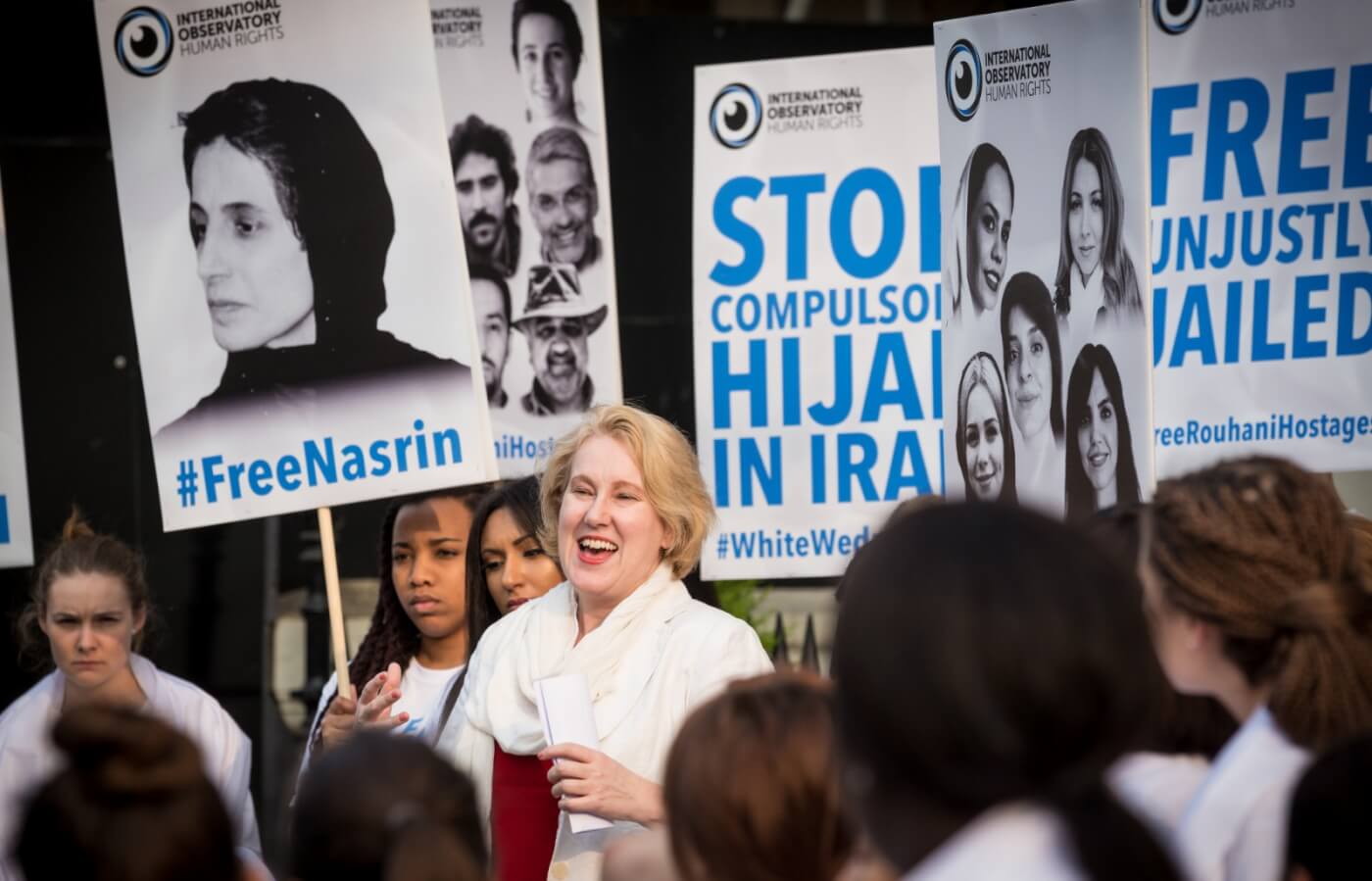On 20 October, a young woman was arrested in central Iran for “insulting the Islamic hijab” after a video appeared to show her cycling without a veil.
Since the 1979 revolution in Iran, women have been forced to wear the hijab in public. Back then, more than 100,000 women and men took to the streets to protest against the law and opposition to it has never gone away.
In 2017, Iranian journalist Masih Alinejad started the White Wednesdays movement to encourage Iranian women to wear white headscarves on Wednesdays to protest the compulsory hijab laws in Iran. In April 2019, the International Observatory of Human Rights spoke to her about women’s rights in Iran.
The International Observatory of Human Rights also interviewed Shaparak Shajarizadeh, an activist opposing the compulsory hijab law. She was jailed, tortured and fled to Canada before she was sentenced to 20 years in prison in absentia.
Ms Shajarizadeh’s lawyer was Nasrin Sotoudeh, a prominent Iranian human rights attorney. In March 2019, she was sentenced to 38 years in prison and 148 lashes for her work defending, especially women’s, civil and political liberties. Among her charges were “encouraging prostitution” for advocating against compulsory hijab and defending citizens’ right to peaceful dissent.
Yesterday, it was announced that Sotoudeh has been moved to the notoriously harsh Gharchak Prison (also spelled Qarchak), known as the most dangerous prison in Iran due to its inhumane medical and psychological conditions, despite grave medical issues that require her hospitalisation.
In an interview with CHRI on 20 October, Reza Khandan, Sotoudeh’s husband, said that Nasrin suffers from serious cardiac and pulmonary complications after having been on a hunger strike from 11 August to 26 September to protest the continued imprisonment of Iran’s political prisoners.
Sotoudeh’s husband stated:
“When Nasrin’s heart condition became worse, she needed an angiography. We have been waiting these past few days to prepare for her transfer to the hospital [from Evin Prison]. Today the authorities told her to get ready to go to the hospital but then she ended up in Gharchak Prison. The transfer was not announced by the prison authorities but by Nasrin herself who was allowed to make a brief phone call to give the news.”
Earlier this summer, Dr Kylie Moore-Gilbert, an imprisoned dual British-Australian citizen, was also moved to the notorious prison after two years at Evin prison. She was a lecturer in Islamic studies at the University of Melbourne before being arrested after speaking at an academic conference in Iran in 2018. She is facing 10 years in prison on espionage charges.
Yet Dr Moore-Gilbert is but one of at least 13 dual and foreign nationals currently imprisoned in Iran or under house arrest.
Since 2010, at least 30 dual and foreign nationals have been arrested unlawfully in Iran.
Over recent years the Iranian regime has continually arrested and arbitrarily detained dual and foreign nationals, often under the pretext of protecting national security or counterterrorism.
In reality, those detained are innocent of all charges and have been targeted purely to be used as political bargaining chips to further the foreign policy interests of the Iranian regime – a practice that has become known as “hostage diplomacy”.
On Wednesday 28 October, the International Observatory of Human Rights is hosting a webinar on a wide range of themes relating to the practice of hostage diplomacy in Iran.
You can find more details and RSVP here.
The webinar is part of the International Observatory of Human Rights campaign #FreeRouhaniHostages which focuses on securing the release of all dual and foreign nationals in Iran, safeguarding those that find themselves detained, and incentivising the Iranian regime to pursue different approaches in their diplomatic dealings.
Iran & Covid-19
Meanwhile, Iran recently reported its highest daily death toll from Covid-19.
Health ministry spokesperson Sima Sadat Lari said 337 people had died in the past 24 hours, exceeding the previous daily high of 279 set last Wednesday and bringing the total since February to 30,712. She also announced 4,251 new confirmed cases.
“In recent days, we have witnessed an unprecedented increase in mortality from the disease,”
Ms Lari was quoted as saying by the AFP news agency.
Authorities have closed schools, mosques, shops, restaurants and other public institutions in the capital and made it mandatory for people to wear face masks in public. Travel into and out of Tehran and four other major cities has also been banned.

